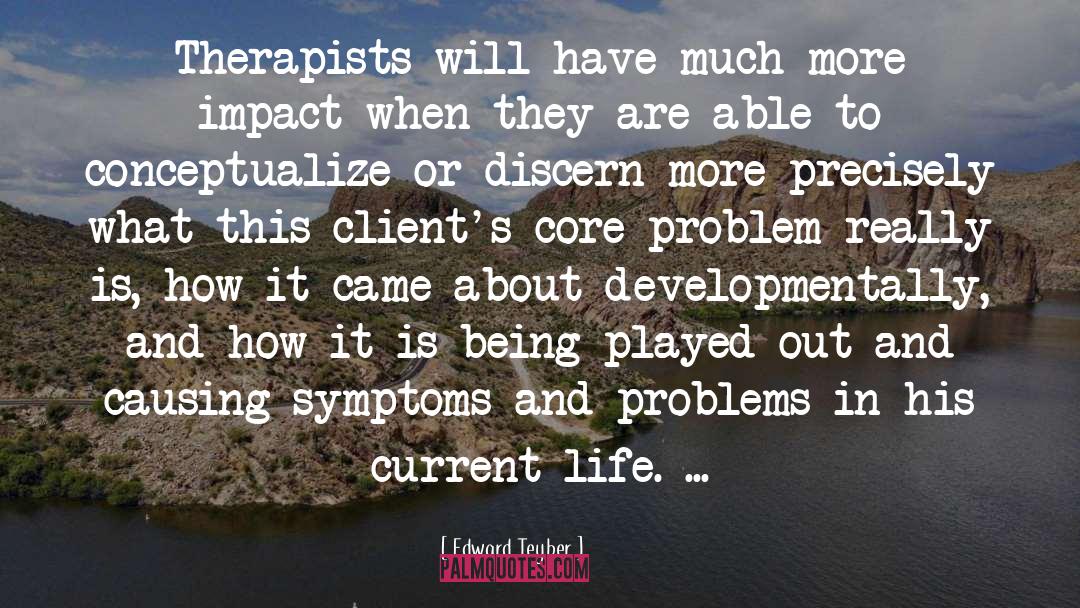Edward Teyber Famous Quotes
Reading Edward Teyber quotes, download and share images of famous quotes by Edward Teyber. Righ click to see or save pictures of Edward Teyber quotes that you can use as your wallpaper for free.
Family systems theory offers therapists an invaluable way of understanding their clients' strengths and problems - clarifying the familial rules, roles, myths, communication patterns, and boundary issues that defined their clients' development.
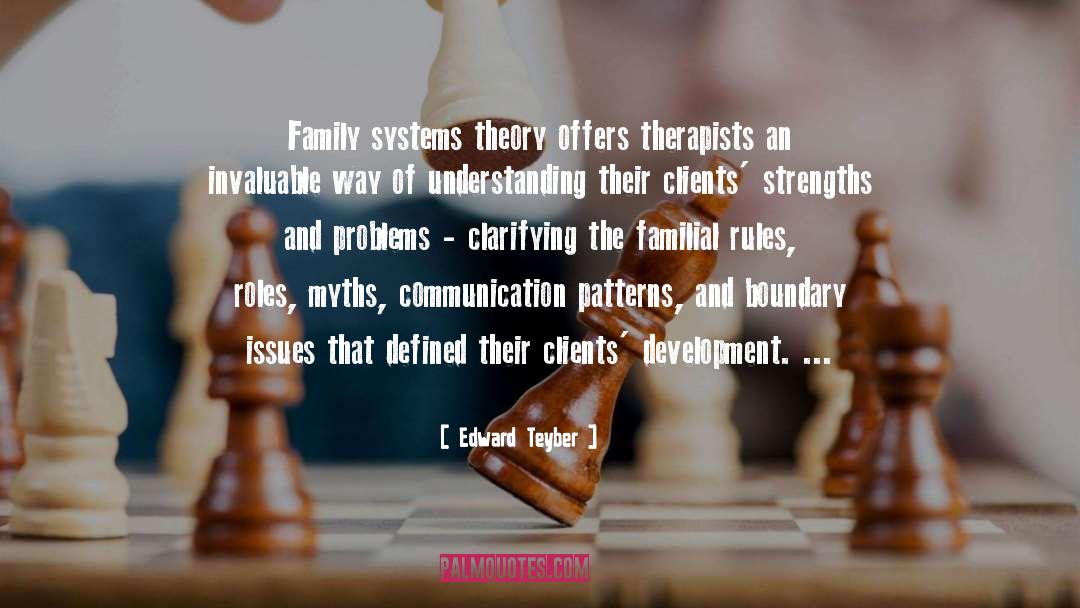
Object relations theorists are interested in understanding how formative interactions between parents and children become internalized by the child and, akin to cognitive schemas, serve as mental representations that shape or guide how children establish and carry out subsequent relationships with others.
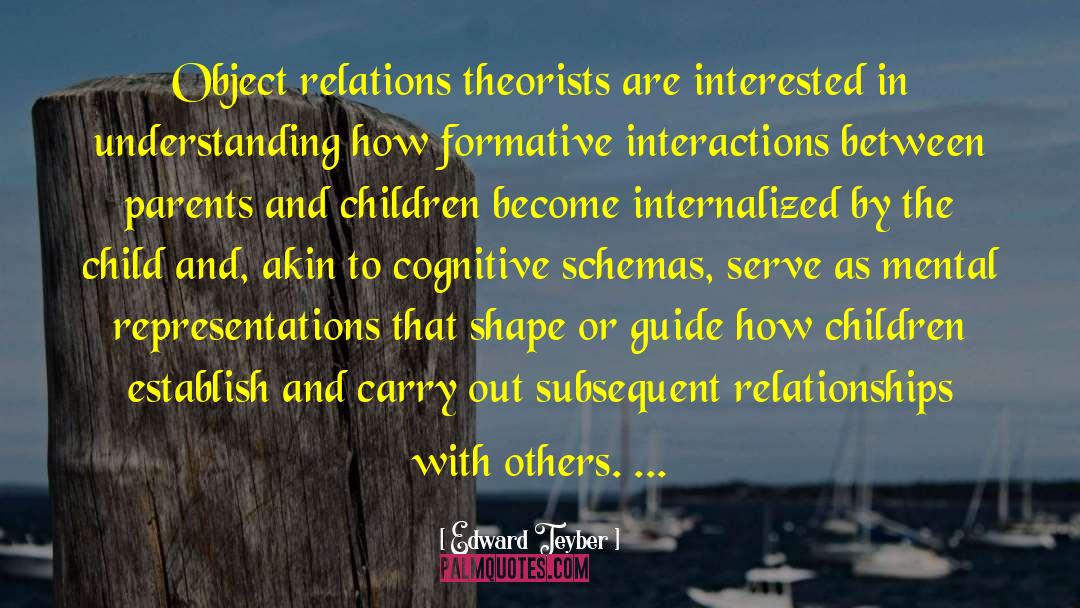
There are, in fact, no more important communications between one human being and another than those expressed emotionally, and no information more vital for constructing and reconstructing working models of the self and other than information about how each feels towards the other...it is the emotional communication between a patient and his therapist that play the crucial part. John Bowlby (1988, pp. 156)
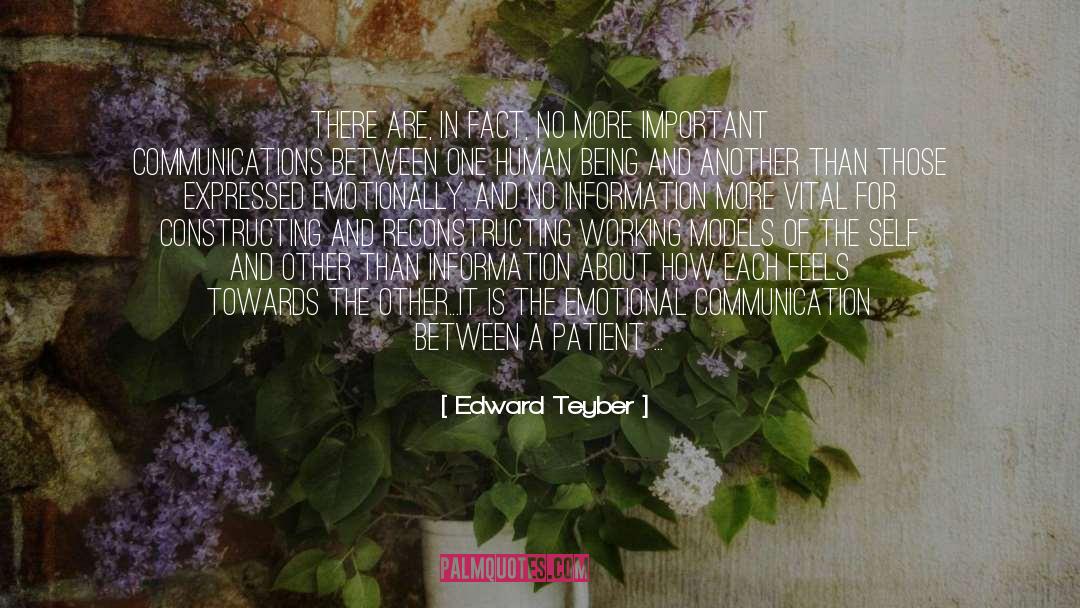
In fact, the same intervention or response may even have the opposite effect on two different clients with contrasting developmental histories and cultural contexts. For example, if a client's parent was distant or aloof, the therapist's judicious self-disclosure may be helpful for the client. In contrast, the same type of self-disclosure is likely to be anxiety-arousing for a client who grew up serving as the confidant or emotional caregiver of a depressed parent. Greater sharing with the therapist may help the first client learn that, contrary to her deeply held beliefs, she does matter and can be of interest to other people. In contrast, for the second client, the same type of self-disclosure may inadvertently impose the unwanted needs of others and set this client back in treatment as, in her mind, she experiences herself back in her old caretaking role again - this time with the therapist. This unwanted reenactment occurs because the therapeutic relationship is now paralleling the same problematic relational theme that this client struggled with while growing up.
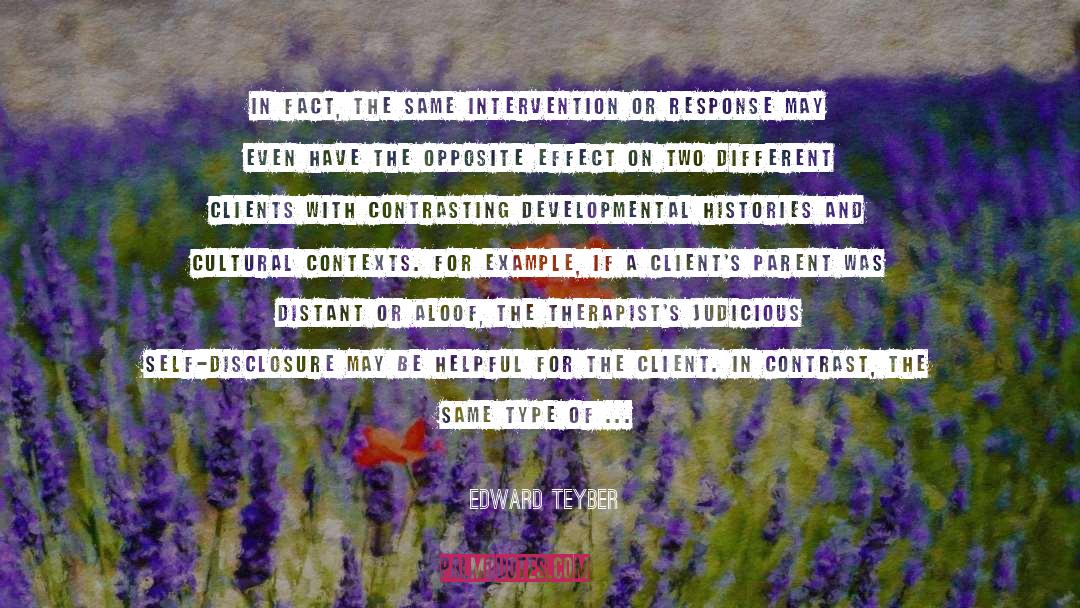
Toward the end of the first session, no matter how well it seems to have gone, the therapist is encouraged to ask clients how the session felt to them and whether they have any concerns about the treatment process or the therapist.
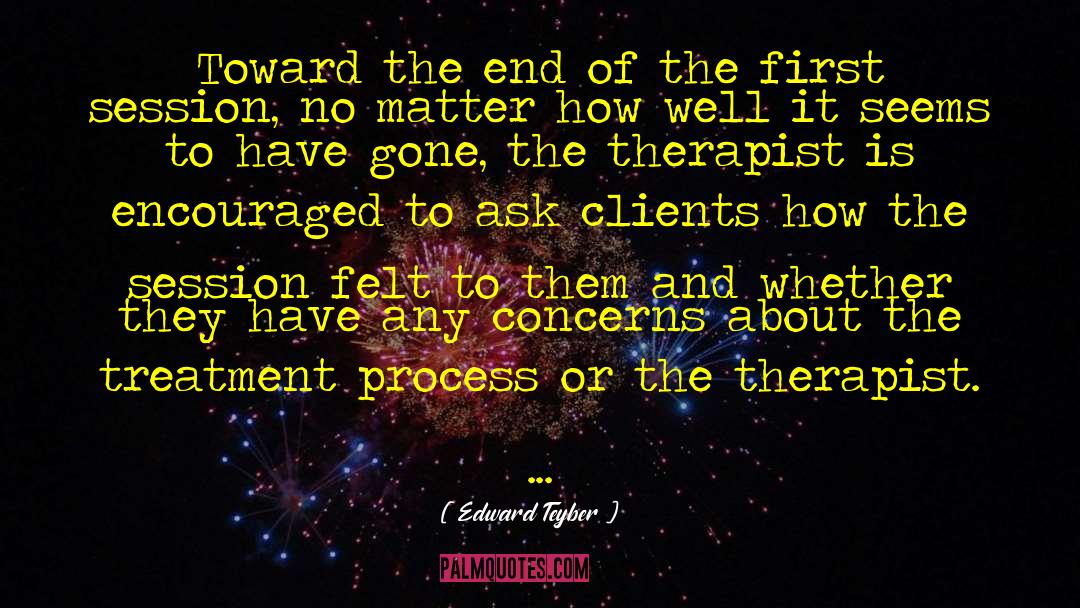
For example, in order to identify these schemas or clarify faulty relational expectations, therapists working from an object relations, attachment, or cognitive behavioral framework often ask themselves (and their clients) questions like these: 1. What does the client tend to want from me or others? (For example, clients who repeatedly were ignored, dismissed, or even rejected might wish to be responded to emotionally, reached out to when they have a problem, or to be taken seriously when they express a concern.) 2. What does the client usually expect from others? (Different clients might expect others to diminish or compete with them, to take advantage and try to exploit them, or to admire and idealize them as special.) 3. What is the client's experience of self in relationship to others? (For example, they might think of themselves as being unimportant or unwanted, burdensome to others, or responsible for handling everything.) 4. What are the emotional reactions that keep recurring? (In relationships, the client may repeatedly find himself feeling insecure or worried, self-conscious or ashamed, or - for those who have enjoyed better developmental experiences - perhaps confident and appreciated.) 5. As a result of these core beliefs, what are the client's interpersonal strategies for coping with his relational problems? (Common strategies include seeking approval or trying to please others, complying and going along with what others want them to do, emotionally disengaging o
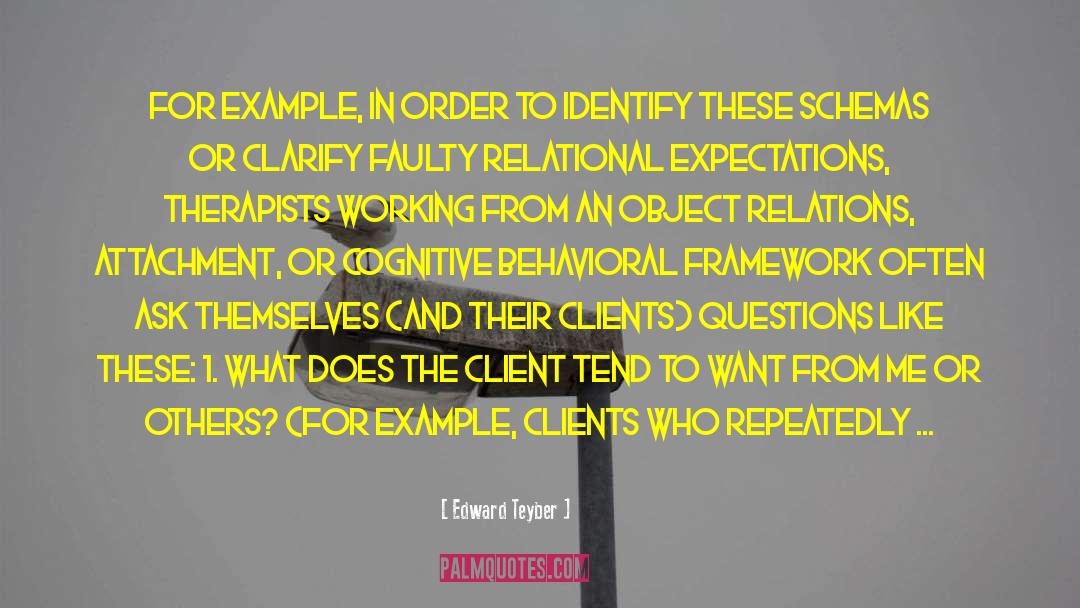
When clients relinquish symptoms, succeed in achieving a personal goal, or make healthier choices for themselves, subsequently many will feel anxious, guilty, or depressed. That is, when clients make progress in treatment and get better, new therapists understandably are excited. But sometimes they will also be dismayed as they watch the client sabotage her success by gaining back unwanted weight or missing the next session after an important breakthrough and deep sharing with the therapist. Thus, loyalty and allegiance to symptoms - maladaptive behaviors originally developed to manage the "bad" or painfully frustrating aspects of parents - are not maladaptive to insecurely attached children. Such loyalty preserves "object ties," or the connection to the "good" or loving aspects of the parent. Attachment fears of being left alone, helpless, or unwanted can be activated if clients disengage from the symptoms that represent these internalized "bad" objects (for example, if the client resolves an eating disorder or terminates a problematic relationship with a controlling/jealous partner). The goal of the interpersonal process approach is to help clients modify these early maladaptive schemas or internal working models by providing them with experiential or in vivo re-learning (that is, a "corrective emotional experience"). Through this real-life experience with the therapist, clients learn that, at least sometimes, some relationships can be different and do not have to follow th

What's so interesting here is that through the course of development, these secure children increasingly "internalize" their parents' emotional availability and responsiveness and come to hold the same constant or dependable loving feeling toward themselves that their parents originally held toward them (certainly, a beautiful developmental process to watch unfold in securely attached children). Said differently, cognitive development increasingly allows securely attached children to internally hold a mental representation of their emotionally responsive parents when the attachment figures are away and they can increasingly soothe themselves as their caregivers have done - facilitating the child's own capacity for affect regulation and independent functioning. Thus, as these children grow older and mature cognitively and emotionally, they become increasingly able to soothe themselves when distressed, function for increasingly longer periods without emotional refueling, and effectively elicit appropriate help or support when necessary. In this way, object constancy and more independent functioning develops - facilitating their ability to comfort themselves and become the source of their own self-esteem and secure identity as capable, love-worthy persons. Furthermore, they possess the cognitive schemas or internal working models necessary to establish new relationships with others that hold this same affirming affective valence.
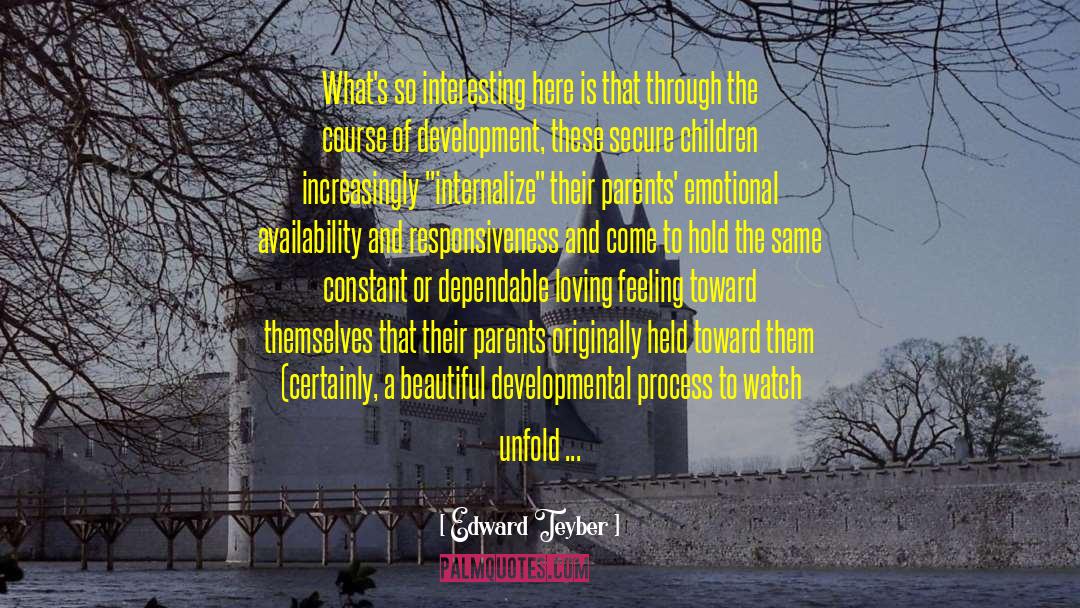
Therapists will have much more impact when they are able to conceptualize or discern more precisely what this client's core problem really is, how it came about developmentally, and how it is being played out and causing symptoms and problems in his current life.
